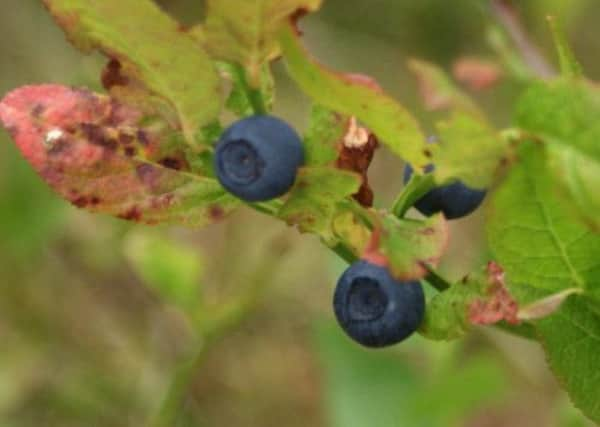Could humble blaeberry provide a cure for diabetes?


The scientists at the world-renowned Rowett Institute of Nutrition and Health at Aberdeen University are seeking to prove whether blaeberry extract can reduce sugar intake when taken with a meal and therefore have long term benefits in preventing the development of Type 2 diabetes - a disease which affects more than 200,000 people in Scotland.
The team behind the study are looking to recruit men aged between 40 and 70 who feel they may be overweight - or post menopausal women who also may have weight concerns to take part in the study.
Advertisement
Hide AdAdvertisement
Hide AdThey are also seeking to recruit people in the same age group who have Type 2 Diabetes, which is controlled by diet alone.
Dr Nigel Hoggard who leading the study, said: “This particular study could potentially provide us with extremely important findings, however as is always the case with these areas of research, we really do need the public to help us by volunteering to take part.”
He added: “We are always keen to hear from anyone who may wish to take part in any of our studies and would be delighted to provide anyone with any more information they need.”
Testing process
A university spokesman said: “All volunteers will get both types of capsules (blaeberry extract and control) with a break in between taking each set of capsules. Volunteers will then be asked to come in at the beginning and end of each of the three week periods to give blood over a four hour period so that the research team can measure their blood sugars and other makers related to health.
“This will help to determine if the blaeberry capsule is having an effect on markers of health and how the metabolism of sugar compared with the control capsule.The study will involve taking a blaeberry extract in a capsule and five visits to the Rowett.”
Around 250,000 people in Scotland have diabetes - about one person in every 20. The majority - about 217,500 - have Type 2 diabetes, which unlike Type 1 diabetes tends to develop later in life, often linked an unhealthy lifestyle.
Traditional remedies
Traditional folk remedies have already cited the nutrient-rich berries as a herbal treatment for diabetes and digestive problems. In Scotland the blaeberry can be found throughout the country, but it is most abundant in the Highlands, growing in both moorland and woodland.
The berries can grow up to one centimetre in diameter and ripen to a dark blue colour between July and August. They are widely eaten by a number of birds, including black grouse, capercaillie and members of the thrush family.
The juice of the berries has also been used as a dye, providing a blue colour for both linen and paper.